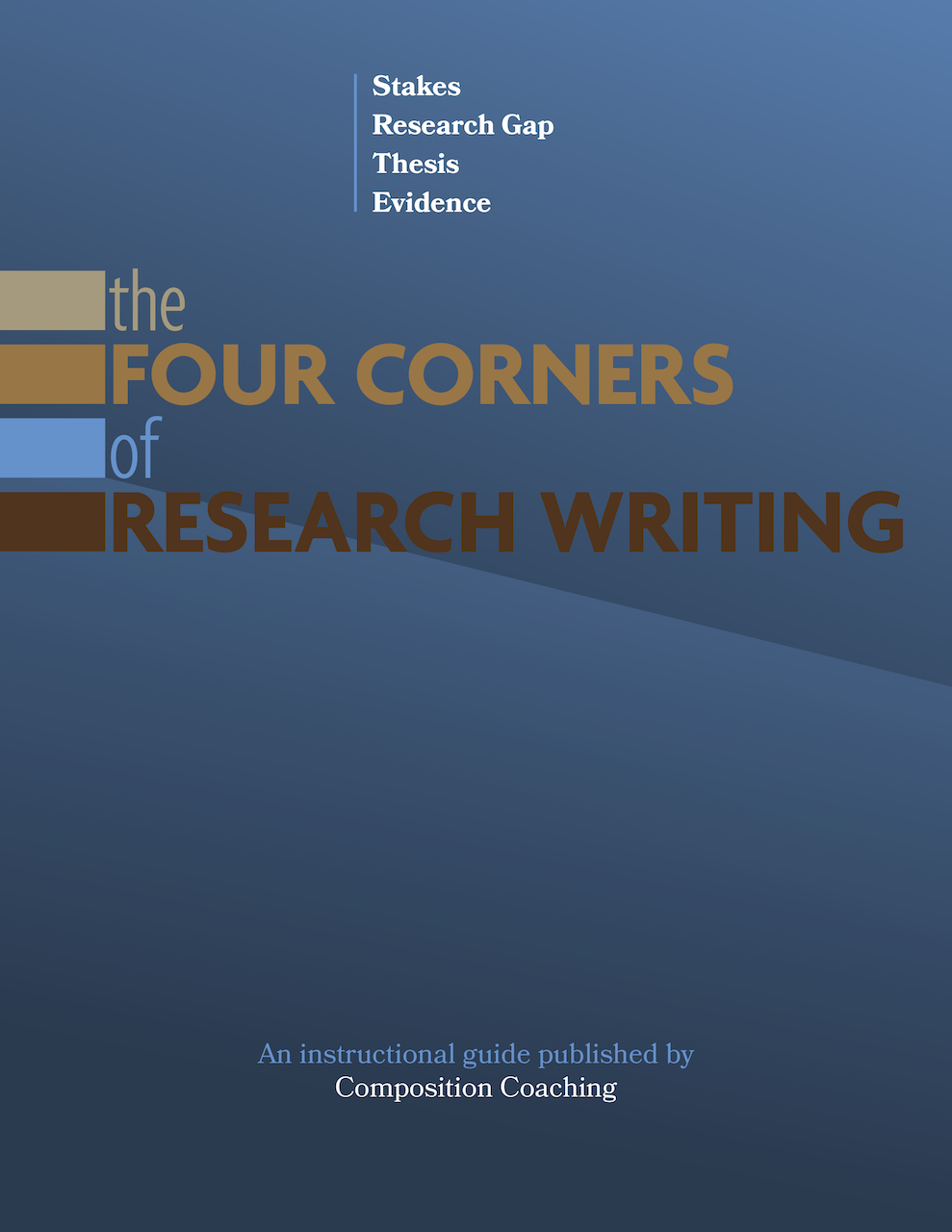The Four Corners of Research Writing
Composition Coaching's custom approach to writing guidance is to break down "four corners" of academic research writing. This guide is the most extended description of the four corners framework, available at a low price so everyone can benefit whether you've received writing advice in the past or not.
About the guide
Ground your reading, planning, drafting, and revising in the "four corners" of a paper's stakes, research gap, thesis, and evidence. Detailed, illustrative chapters explain the corners as they play out in academic research articles, and include suggestions for taking the four corners of your project to the next level.
The Four Corners of Research Writing guide features:
- 70 pages of content
- Examples from 60 different published papers
- Over 100 insights
- Easy-to-read design
- PDF download for easy portability between all your devices



Use The Four Corners of Research Writing to:
- Learn a conceptual model for scholarly research writing
- Always have a sense of "where" you are when reading an article
- Use repetition strategically when writing your own papers
- Understand the "parts" that you need to create a compelling research article
- Know when to step away from your data (evidence) to focus on the framing (research gap), importance (research gap/stakes), and main claim (thesis)
- See detailed examples from published scholarship
- Compare and contrast writing in your scholarly field with other papers in other disciplines
- Draft challenging passages more easily with tried-and-true, concrete linguistic patterns
- Revise and edit purposefully, knowing the rationale behind different textual elements
- Develop confidence in your writing
- Downplay grammar, formatting, and other mechanics in favor of a solid conceptual framework
- Pair the guide with ongoing coaching to apply the writing insights with another set of eyes
Feedback from people who have recently used the "four corners" framework:
- Doing it all: "I've learned how to formulate interesting and reasonable research questions, elaborate upon the stakes of my research and the research gap that inspired it, develop a rigorous methodology, collect strong evidence, analyze my evidence, and create a compelling thesis."
- Building courage: "Academic writing initially seemed like a concept far out of my reach but I now feel confident that it is well within my reach."
- Revising well: "I learned where my strengths and weaknesses were in each of the four corners of research writing and learned how to draw out and improve each part to the best of my abilities."
- Audience-centered: "I am now more able to read scholarly research and can conduct research that is interesting, insightful, relevant, and well–structured."
Purchase
Purchase the guide now for only $15 USD. It will be delivered to you automatically by email:

